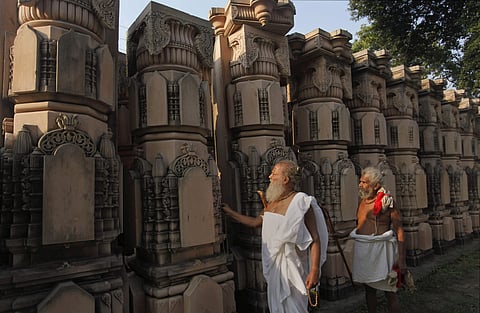

NEW DELHI: The five-judge constitution bench by penning down its 1045-page judgment on the Ayodhya case unanimously not only brought clarity for the parties concerned but also made it difficult to overturn it, two lawyers TNIE spoke to said.
Strangely Saturday's verdict is silent on who the author of the judgment is, thus deviating from the original practice of the apex court where the name of the judge is mentioned on top of the verdict.
Supreme Court lawyer DK Mahant lauded the bench and said, "A unanimous decision of this nature gives the public a clear picture that the Supreme Court, while deciding the matter, avoided the remote possibility of anyone casting even a shred of doubt."
Echoing similar views, Advocate on Record Ashwani Dubey said, "Supreme Court has considered all issues, facts, legalities, prevalent laws and delivered its unanimous verdict, which is a welcome step as it becomes easier for the public at large to understand the sentiment of the bench. Legally speaking, it's very difficult to overturn the unanimous verdict unlike in the case of a dissenting judgment."
Senior advocate KV Dhananjay, though, differed.
"The possibility of differing and even mutually contradictory views would have undermined the strength of the judgment. However, the mere fact that the judgment is unanimous will not be sufficient for the losing parties to treat the judgment as one without flaws or blame. Further, the fact that the judgment was bound to be given within a deadline is likely to be used by the side that seeks a review," he said.
Also hear: Senior Lawyer KV Dhananjay on the big question Muslims may raise: